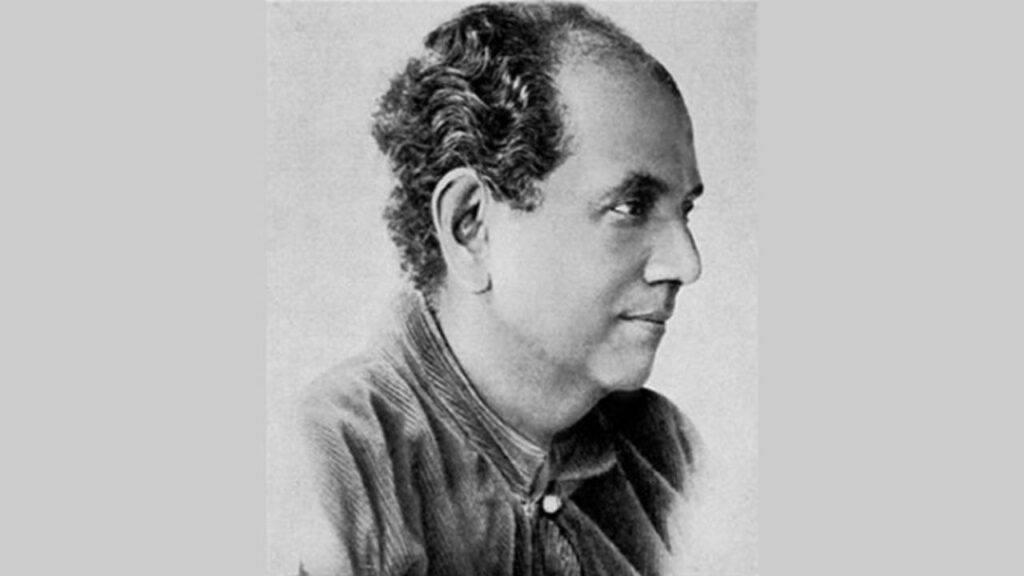Abanindranath Tagore Biography: Abanindranath Tagore was a famous Indian artist who was Rabindranath Tagore’s nephew. His ideas were the first ones that really pushed Swadeshi ideals in Indian art.
Table of Contents
First, Abanindranath started the “Indian Society of Oriental Art.” Later, he started the Bengal School of Art. The only reason he opened the school was to fight against the impact of English art on Indian artists.
He did that by adding Indian aspects to his art, and it worked when British art institutions agreed to teach and promote his style.
His idea to bring Mughal and Rajput images up to date led to the birth of modern Indian painting, which began at his Bengal school of art.
Aside from that, Abanindranath is also known as a skilled and successful writer. Most of the books he wrote were for kids.
His books for kids, like “BudoAngla,” “KhirerPutul,” and “Rajkahini,” are some of the best in Bengali.
Abanindranath Tagore Biography:
| Name | Abanindranath Tagore |
| Nickname | Aban Thakur |
| Date of Birth | 7 August 1871 |
| Death | 5 December 1951 |
| Religion | Hindu |
| Birth Place | Jorasanko, Calcutta, Bengal, British India |
| Hometown | West Bengal, India |
| Famous for | Drawing, painting, writing |
| Nationality | Indian |
| Profession | Painter and Writer |
Abanindranath Tagore Wiki and Biography
Abanindranath Tagore was born in an Indian town called Jorasanko. As the younger brother of the famous artist Gaganendranath Tagore, Abanindranath became interested in art at a young age.
Art and writing were always a part of his childhood because he grew up with the famous Tagore family. He naturally became interested in them.
Abanindranath Tagore Early Life
The vice-principal of the government school taught Abanindranath, and it was then that he became interested in Mughal art.
Then he started painting beautiful pictures about the life of Lord Krishna. These paintings had a lot of Mughal style in them.
As he was having some problems with the way art was taught at the Calcutta School of Art, which was mostly based on Western models, he met E.B.
Havell and told him how important it was for Indian art to keep some of its original features. This made it possible for the way the school taught to change.
He and his brother Gaganendranath Tagore also started the Indian Society of Oriental Art, whose main goal was to promote Indian art.
Abanindranath had a lot of faith in the traditional Indian painting styles used by the early Mughal and Rajput painters. He really wanted to spread this method, and he worked very hard to make that happen.
Also Read: Swami Vivekananda Biography: Birthday, Early Life, Career, Education, Death, Later Life
Abanindranath Tagore Education
He began to learn about the subtleties of art while he was at the Sanskrit College in Kolkata.
When he got married in 1889, he quit Sanskrit College, where he had been studying for nine years, and went to St. Xavier’s College to study English for one and a half years.
In 1890, he then started going to the well-known Calcutta School of Art. There, European artists O. Ghilardi and Charles Palmer taught him how to paint.
While Ghilardi taught him how to use pastels perfectly, Charles taught him a great deal about oil painting.
Around 1897, the vice-principal of Government School of Art taught him different methods, such as those used in European paintings. It was at that time that he became really interested in painting.
Abanindranath Tagore Career
Abanindranath Tagore began painting when he was young, but it wasn’t until the late 1890s that his work really took off. The themes of most of his writings were Hinduism and other Indian things.
These works were made by him in 1930 and were called “Arabian Nights.” The works showed how cosmopolitanism was growing in Calcutta, but they used Arabian Nights stories as their main theme.
People still think that this group of paintings is one of Abanindranath Tagore’s best works. People from other parts of Asia were interested in him because of his radical ideas and unwavering devotion to custom.
Okakura Kakuzo, a Japanese art expert, and Yokoyama Taikan, a famous Japanese painter, are two of them. Meeting these famous people made it possible for him to use Japanese and Chinese calligraphy styles and customs in his work.
He also worked with the English artist and author William Rothenstein, who tried to use Indian customs in his own writing. Abrinthranath was friendly with William Rothenstein, who helped Rabindranath Tagore get his book Gitanjali published in English.
Abanindranath Tagore Personal Life and Wife
He got married to Srimati Suhasini Devi in 1889. She was the daughter of Bhujagendra Bhusan Chatterjee.
As per Hindu customs, this great artist lived a simple life, but other than that, not much is known about his personal life. He died in Calcutta on August 7, 1951. That was where he lived most of his life.
Also Read: Manoj Das Biography: Birthday, Wiki, Early Life, Education, Career, Awards, Personal Life



